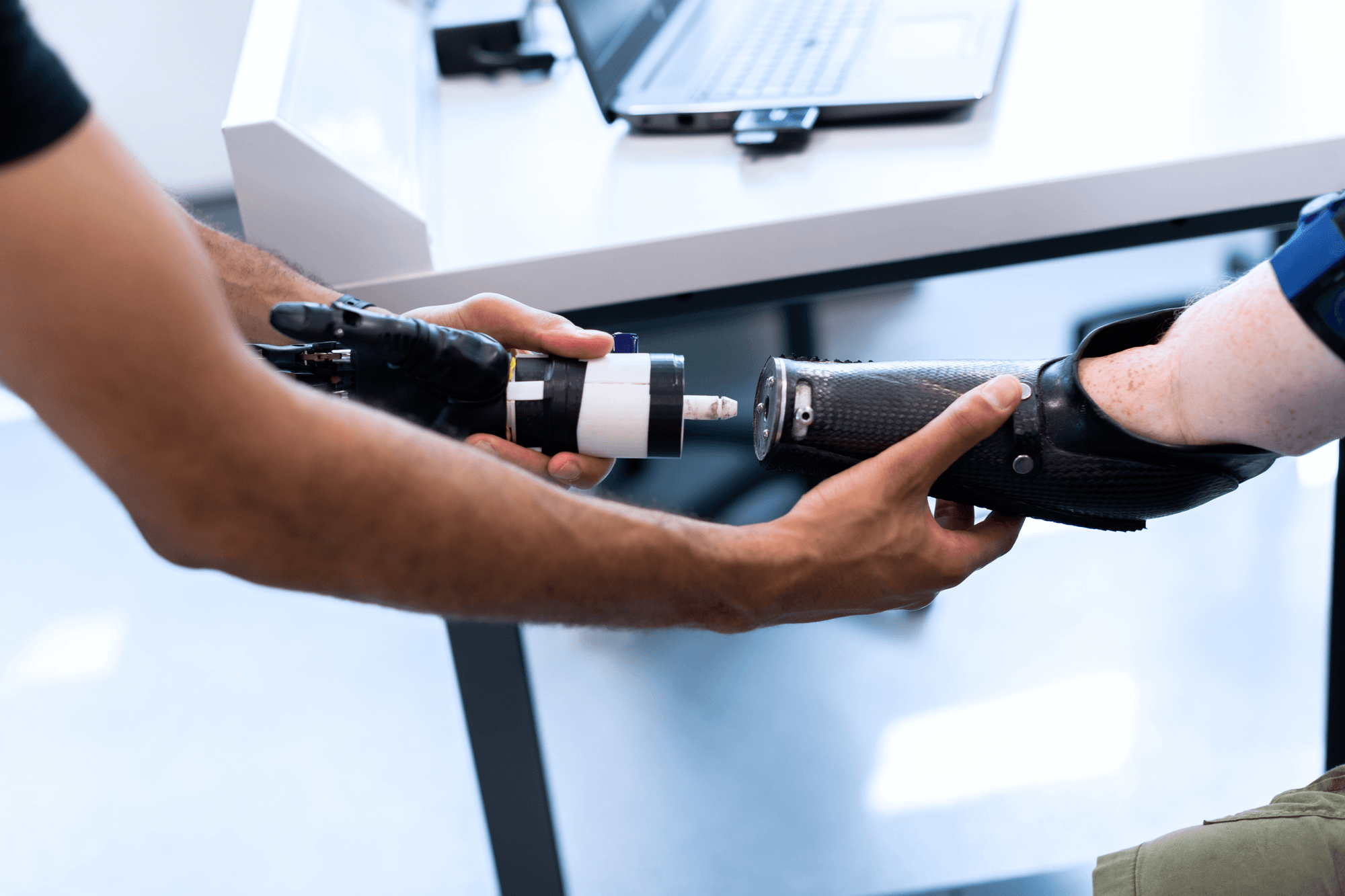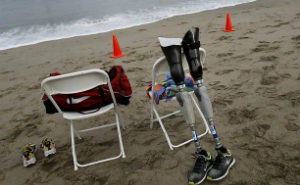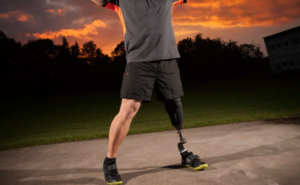Amputation is an extremely difficult adjustment, both physically and mentally. However, with time, hard work, and a solid support group, you will see that your amputation doesn’t put any new restrictions on your life. Horton’s Orthotics and Prosthetics is here for all your prosthetic limb needs. We will fit you for your prosthetic limb, and provide any prosthetic limb education you might need at one of our six Arkansas locations.
A question many ask before undergoing an amputation is do wearing or using a prosthetic limb hurt?
Well, we’ve put together this article to answer that question and guide you on your amputation journey. In it, we’ll provide some tips to help improve your post-surgery recovery and talk through the process of getting a prosthetic limb.
First Things First
Before beginning the discussion on prosthetic limbs, we’d like to address an important matter in your recovery immediately following your amputation — and the rest of your life.
Aside from physically healing, your top priority after your operation should be your mental health. The time right after an amputation is a challenging transition period. Staying in the right headspace is essential for this adjustment. With the right attitude, continued mobility, and an excellent quality of life will be a breeze to achieve.
Amputees Beyond Life’s Expectations (A.B.L.E) is a support group for amputees and their family members which offers monthly meetings. These meetings allow new amputees to ask questions and get cheered on through any difficulties they experience while getting used to their new bodies.
A.B.L.E. meetings are a great source of information, as well as camaraderie, but just in case you aren’t able to attend and you still need questions answered, there’s H.O.P.E.
H.O.P.E. is a valuable resource created by Horton’s to be by your side in every step of your amputation and prosthetic journey.
Finding the Right Prosthetic Limb
While the timeline for getting your prosthetic limb will vary according to your individual case. Generally speaking, before your doctor will prescribe a person prosthesis, all swelling must go down and healing of the residual limb must be complete. Then, you can schedule a free consultation appointment with us at Horton’s.
During the first part of your visit, one of our practitioners will give you a scrupulous examination and evaluation to identify your needs. Next, they’ll recommend a device and take your measurements to create the perfect device for you. Last, they will go over the fitting process with you, set up a treatment or rehabilitation plan, and respond to any questions you have.

Now, if you are getting a prefabricated device, then you can take it home with you that day. If it’s a custom device, you’ll have to get the go-ahead from your insurance company first and then wait two to three weeks — or longer if it’s a special device — before you can try on your new prosthetic limb and get moving.
Do Wearing or Using Prosthetic Limbs Hurt?
We’ve covered the importance of prioritizing your mental health and the basics of getting a prosthetic limb in Arkansas. Now, it’s time to answer one of the first questions an individual undergoing amputation will have.
Do wearing or using prosthetic limbs hurt?
Unfortunately, the answer is not a clear-cut yes or no.
Prosthetics are not supposed to hurt. At Horton’s, we endeavor to make sure that your prosthesis is properly fit in order to minimize pain from the prosthetic limb itself.
Any pain that may be felt is coming from another source. More often than not, the pain an amputee experiences following the removal of a limb can be chalked up to either residual limb or phantom limb pain. Let’s take a look at each of these conditions.
Residual Limb Pain
According to the Mayo Clinic, 50% of people who’ve had an amputation will experience residual limb pain. It will show up right after surgery and might manifest as a throbbing, burning, or squeezing pain. Residual limb pain finds its origins in a variety of conditions, including:
- Surgical trauma
- Underlying conditions concerning the skin, tissue, or nerves
- Infection
- A tumor
- Problems with the prosthetic limb
Of course, here at Horton’s, we strive to ensure that your prosthetic limb is fit properly so any residual limb pain you have is not the result of our prosthesis. If you experience this type of pain, make an appointment with your doctor immediately to identify the cause.
Phantom Limb Syndrome
Originally thought to be a condition that was just in one’s head, scientists now acknowledge that phantom limb syndrome is a real sensation many amputees experiences. Described as pain felt in the amputated body part, this ailment is believed to stem from the brain and spinal cord. Phantom limb syndrome can reveal itself as crushing, burning, twisting, or pins and needles sensations. Additionally, you may feel itching, temperature, motion, or pressure.
The good news about phantom limb syndrome is prosthesis has no bearing on whether it occurs or not. That being said, if you do experience phantom limb syndrome, see your doctor for treatment to lessen your symptoms.

Prosthetic Limb Arkansas
Do wearing or using prosthetic limbs hurt? Sometimes yes, but prostheses are not supposed to cause pain! At Horton’s Orthotics and Prosthetics, we’ll work diligently to make sure your prosthetic limb fits properly so you don’t hurt. Make an appointment today to let us help you increase your mobility and quality of life!



